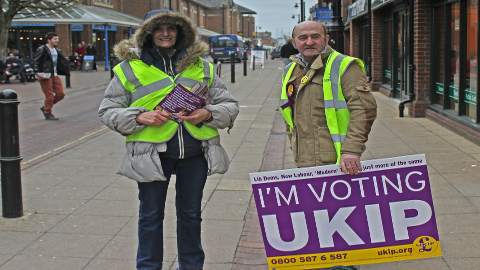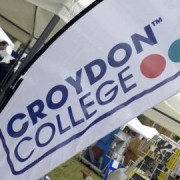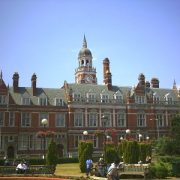Following their dramatic victory in Rochester last Thursday, UKIP could well define voter intentions in key marginals such as Croydon Central come next May.
A recent poll, conducted by Lord Ashcroft earlier this month, has shown Croydon Central, host of UKIP’s “Carnival of Colours” last summer, to be one of twelve seats the Conservative party are fighting to keep in the upcoming general election.
Though Ashcroft predicts that Conservative Gavin Barwell, MP for Croydon Central, will likely lose his seat to Labour at the General Election there is a third contender gaining ground. No mainstream party has seen quite the surge in support that UKIP has – up seventeen percentage points, according to Lord Ashcroft.
UKIP’s success in the Rochester and Strood by-election may have been decisive but it was not necessarily a foregone conclusion. The party did have a comfortable lead over the two mainstream parties but the constituency was not part of the top 250 “UKIP friendly” seats, demonstrating that all marginals are vulnerable to the ‘UKIP effect” – the political trend of a “large proportion of the populace that [are] going to vote for UKIP just to tell us how angry they are”, according to Croydon Conservatives’ leader Tim Pollard.
Barwell echoed Pollard by arguing in his blog it was not the Conservative leadership that was responsible for the loss of seven percentage points, but the devastating impact of defections to UKIP from former loyal voters. 23 per cent of 2010 Conservative voters are now planning to vote for the emerging party, whereas six per cent of Labour voters have the same plan.
The “UKIP effect” is something that Conservatives are reportedly factoring into their upcoming election campaign. Earlier this month, Inside Croydon and the Guardian revealed that 40 per cent of the Conservative Party’s funding in key marginal seats like Croydon stem from ‘secretive dining clubs’. At these clubs diners pay a £400 fee, acting as a donation that does not have to be declared to the Electoral Commission and can preserve anonymity.
A spokesperson for Barwell told ELL that there was nothing “secretive” about the party’s fundraising tactics. “Holding dinners to raise funds for political campaigns is as old as politics itself.”
“All parties do it to pay for the leaflets, posters and adverts that candidates need to get their messages across otherwise no-one would be able to hear what the people who hope to represent us had to say. That’s a pillar of our democracy, and it makes sense to publicise all political views as widely as possible.”
Peter Staveley, the chairman of the UKIP Croydon branch and the prospective parliamentary candidate for Croydon Central, added: “Virtually all parties are funded by donors who donate large sums. Labour is paid for by the Unions; Conservatives by big business. What these dining clubs reveal is that there are still quite a large number of people who think that by donating relatively large sums to the Conservative Party that they can gain some sort of influence in government policy.”
Dining clubs may not be new, but what is a fresh phenomenon, claims Staveley, is the number of people who have hitherto never voted now doing so under the banner of UKIP. “Following on from the Clacton, Heywood and Middleton and Rochester and Strood by-elections is that there is no ‘safe’ seat for any party. UKIP is taking votes from all parties, and, more importantly, getting votes from people who have never voted or have not done so for more than 10 years.”





